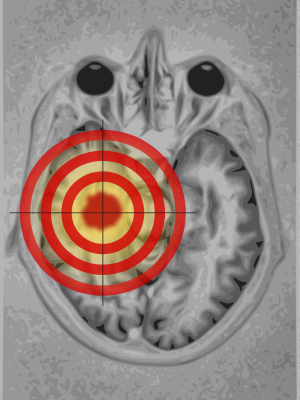This post was originally published in 2012 and is part of an ongoing review of past posts about the conceptual boundaries of addiction and its relationship to the disease model and recovery.
In a thoughtful post, Marc Lewis questions the disease model of addiction.
He doesn’t dismiss it out of hand. He seems to look for ways in which it’s right and useful.
It’s accurate in some ways. It accounts for the neurobiology of addiction better than the “choice” model and other contenders. It explains the helplessness addicts feel: they are in the grip of a disease, and so they can’t get better by themselves. It also helps alleviate guilt, shame, and blame, and it gets people on track to seek treatment. Moreover, addiction is indeed like a disease, and a good metaphor and a good model may not be so different.
He offers two objections.
Spontaneous Recovery
First the existence of spontaneous recovery:
What it doesn’t explain is spontaneous recovery. True, you get spontaneous recovery with medical diseases…but not very often, especially with serious ones. Yet many if not most addicts get better by themselves, without medically prescribed treatment, without going to AA or NA, and often after leaving inadequate treatment programs and getting more creative with their personal issues.
My first reaction is that we’re not very good at distinguishing misuse, dependence and addiction. These studies include people who met diagnostic criteria for alcohol dependence in college and reduced their use as they moved into other stages of life. The other frequently cited group are heroin dependent Vietnam vets. Again, it’s important to distinguish between dependence and addiction.
So, I think, the problem is not the disease model, but rather, our diagnostic categories and their application. I suspect that if those studies finding high rates of natural recovery limited subjects to those with true loss of control (addiction), the prevalence of spontaneous remission would drop dramatically.
Further, I’m not sure this this is a strong argument at all. Wouldn’t this exclude hundreds of viral and bacterial diseases? These are generally acute illnesses, but don’t other diseases have acute and chronic forms?
Dopamine responses are normal
His second objection is that addiction uses natural brain mechanisms that are shared by many other life experiences.
According to a standard undergraduate text: “Although we tend to think of regions of the brain as having fixed functions, the brain is plastic: neural tissue has the capacity to adapt to the world by changing how its functions are organized…the connections among neurons in a given functional system are constantly changing in response to experience (Kolb, B., & Whishaw, I.Q. [2011] An introduction to brain and behaviour. New York: Worth). To get a bit more specific, every experience that has potent emotional content changes the NAC and its uptake of dopamine. Yet we wouldn’t want to call the excitement you get from the love of your life, or your fifth visit to Paris, a disease.
I have a couple of thoughts about this. First, lots of diseases are characterized by natural body processes turning against the body, many cancers for example. Second, when we’re talking about addiction, we’re not talking about one brain mechanism. (He focused on dopamine release.)
Several brain mechanisms have been identified and, I suspect, better understandings of these will lead to better typologies for AOD problems. Some people may have only one or two of these neurobiological factors, while others have ten. Some factors may be associated with a more chronic form, others may be associated with a more severe loss of control and overall severity may be associated with the number of factors the person has. (Also, some might be primary to addiction, others secondary.)
What is a disease, anyway?
I think the biggest barrier to responding is that the writer did not offer a definition or boundaries for understanding “disease.” Merriam-Webster offers this definition:
a condition of the living animal or plant body or of one of its parts that impairs normal functioning and is typically manifested by distinguishing signs and symptoms
WebMD offers Stedman’s Medical Dictionary’s definition as:
A morbid entity ordinarily characterized by two or more of the following criteria: recognized etiologic agent(s), identifiable group of signs and symptoms, or consistent anatomic alterations.
Is the writer arguing that addiction does not meet these definitions? I’m having a hard time seeing how. And, why does the idea of classifying addiction as a disease bother people so much?

